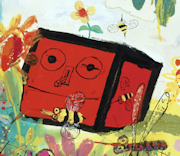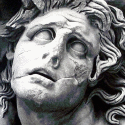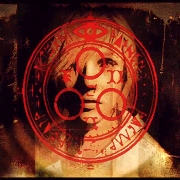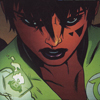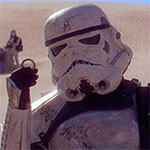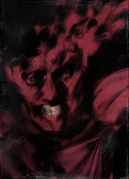|
Some of the more footnotey books I've loved over the last few years: Kevin McAleer, Dueling: The Cult of Honor in Fin-de-Siecle Germany quote:Amidst a spate of recent work drawing attention to the societal significance of dueling in Germany and in Europe in general, Kevin McAleer's Dueling is probably the most ambitious in its claims. The book contends that the sort of dueling in which aristocrats still regularly engaged in Wilhelmine Germany (after it had largely died out elsewhere in Europe) was particularly deadly. It was often fought with pistols at close range, with death as its aim. The author argues that the lethal nature of German dueling must be viewed more broadly as characteristic of German society, that it must be seen as final proof of Germany's peculiar nature, and that it must be directly connected to the violent nature of National Socialist society some decades later. Joel F Harrington, The Faithful Executioner: Life and Death, Honor and Shame in the Turbulent 16th Century quote:As Joel Harrington notes in the preface to this intriguing portrait of Frantz Schmidt, executioner in Nuremberg from 1578 to 1618, the story it tells is first that of a man, and second that of the world in which he lived and worked. Both the man and his world evolved in interesting ways during this period, and it is this evolution that frames Harrington’s lively and very readable book. Janet Browne, Charles Darwin: Voyaging quote:Browne suggests that natural selection could only have been dreamt up by someone in steeped in the individualist, competitive, expansionist, self-help ethos of Victorian industrialism, capitalism and imperialism. This sounds more plausible than the suggestion that it could only have been discovered by someone whose last name contained the letters A and W, but really has no more support than the latter. Certainly Browne hasn't a well-supported general theory of the preconditions of scientific discovery to back up statements like this. --- But these lapses are mercifully few, and she respects (implicitly, though not by name) the old logical-empiricist distinction between the ``context of discovery'' and the ``context of justification''; those who want to see natural selection written off as mere ideology will have to look elsewhere. Noel Perrin, Dr Bowdler's Legacy: A History of Expurgated Books in England and America quote:This history of expurgation of English and American literature from 1724 until the 1960's focuses on the influence of changing taste upon literature, especially the changing standards of what constitutes decency. Discussed are (1) expurgations of literary works in the 18th century and the causes of bowdlerism; (2) Dr. Bowdler, his sister (the true author of bowdlerism), and other family members involved in literary expurgation; (3) the many expurgations of Shakespeare; (4) two bowdlerizations of the Bible and several "purified" and abridged versions; (5) James Plumptre's futile efforts to market his expurgations of famous plays; (6) bowdlerizations in American dictionaries and literature; (7) the expurgation of prose and poetry in the Victorian age; and (8) the end of bowdlerism by 1920. --also incredibly well written. Mark Thompson, The White War: Life and Death on the Italian Front 1915-18 quote:In sum, both historians and general audiences with interest in the First World War will benefit from Thompson's study as a contribution toward a more comprehensive, diverse picture of the war than the one to which most western readers are accustomed. The only issue for historians of the war specifically is the fact that Thompson, as he himself admits in his acknowledgements, did not set out to undertake a scholarly study based on archival research, but rather a "narrative history" drawn from secondary sources and well-known published contemporary works (p. 440). Mark Bostridge, Florence Nightingale: The Woman and Her Legend quote:From Lytton Strachey’s vigorous deconstruction in Eminent Victorians (1918) to 1980s cartoons of Margaret Thatcher as the “Lady with the Blowlamp", Florence Nightingale has served generations of historians, critics and commentators as a synecdoche for our difficult relationship with the Victorian age. As Mark Bostridge notes in the final chapter of his masterly new biography, one of the deepest ironies of Nightingale's life is the way in which the uncritical veneration she enjoyed (or suffered) towards the end of her life—expressed in a landslide of material culture, from prints, statuettes and "Nightingale cradles” to music- hall songs and the imposing statue erected in London in 1914-15—proved central in creating the apolitical, religiose "straw woman" so easily torn apart by Strachey and his successors.
|
|
|
|

|
| # ? May 12, 2024 04:02 |
|
Can anyone recommend a good history of the sub-continent (I don't want to separate India from Pakistan in this as they really need to be considered together) particularly from the start of the colonial era through today? I've read Keay's book and enjoyed it but that's a total survey, looking for something with more of a tighter focus on the last 300 years or so.
|
|
|
|
So I've started to become interested in the (history) of the Catholic Church and was wondering if any of you guys have a suggestion for me! I am interested in how it was basically the glue which bound Europe together shortly after the fall of the Roman Empire, so anything regarding the church and the dark ages would be a good starting point for me! I release that is a rather wide net to cast, but I'm happy to read an overview before I focus in on some specifics. Thanks!
|
|
|
|
Is there a good book on the start of the Pinkertons? Somewhat related I read The Devil in the White City and it was decent but while I',m in the late nineteenth century are there any good books on the Klondike gold rush and maybe more books on the development of Chicago, and also the start of the US marshals?
|
|
|
|
Just bought The Glorious Cause: The American Revolution, 1763-1789: I enjoyed battle cry of freedom and what hath god wrought in the Oxford history of the US. Anyone read it and thoughts?
|
|
|
|
Fodder Cannon posted:Is there a good book on the start of the Pinkertons? Somewhat related I read The Devil in the White City and it was decent but while I',m in the late nineteenth century are there any good books on the Klondike gold rush and maybe more books on the development of Chicago, and also the start of the US marshals?
|
|
|
|
Hot Dog Day #82 posted:So I've started to become interested in the (history) of the Catholic Church and was wondering if any of you guys have a suggestion for me! I am interested in how it was basically the glue which bound Europe together shortly after the fall of the Roman Empire, so anything regarding the church and the dark ages would be a good starting point for me! I release that is a rather wide net to cast, but I'm happy to read an overview before I focus in on some specifics. The previously mentioned The Inheritance of Rome would be right up your alley.
|
|
|
|
I'm getting into 1491 right now and really liking it. I'm looking for something similar in readability if possible focused on Europe, preferably early Europe (10,000 BC seems to be about as far back as anything goes, and I have Rome and later pretty well covered) focused on the cultures developing in that area during that era. Right now I'm looking at Europe Between the Oceans and After the Ice. Both have reviews that point out flaws, but I dont know how much of that is academic disagreement and how much is actual flaws. Does anyone have any feedback on those two or other recommendations?
|
|
|
|
Anything good on the PIRA/IRA/The Troubles? I'm mostly ignorant of this topic, so I'm interested in a general history of the PIRA from the ~70's until the mid 2000's. Also, I see some "previous member" memoirs on Amazon and I am generally dubious of that kind of book, but will totally read one if it comes recommended.
|
|
|
|
My college library routinely leaves piles of books they give out, and I snagged myself a free copy of And the band played on... that I still haven't read. Any opinions on it before I start? Is it good/bad/somewhere in between?
|
|
|
MonsieurChoc posted:My college library routinely leaves piles of books they give out, and I snagged myself a free copy of And the band played on... that I still haven't read. Any opinions on it before I start? Is it good/bad/somewhere in between? I've heard it's stellar. Bring tissues.
|
|
|
|
|
MonsieurChoc posted:My college library routinely leaves piles of books they give out, and I snagged myself a free copy of And the band played on... that I still haven't read. Any opinions on it before I start? Is it good/bad/somewhere in between? I've read that some important parts of its interpretation, including its grasp on epidemiology from a scientific point of view, have been questioned by many academics. Still probably worth reading.
|
|
|
|
King Leopold's Ghost was an incredible read but it crushed the infinitesimal amount of faith in humanity I had left. One thing I found interesting was that Leopold basically wanted to cultivate Force Publique soldiers from the Congo's children. On that note, can anyone recommend a good history of child soldiers in Africa? Also, I snagged Persian Fire by Tom Holland in a thrift store for 50 cents today. I loved Rubicon so I'm excited to read it.
|
|
|
|
bicycle posted:Anything good on the PIRA/IRA/The Troubles? Armed Struggle: The History of the IRA by Richard English for an in-depth look at the organization's composition, tactics, and strategy. It's excellent. As far as the memoirs go, Maria McGuire's To Take Arms: My Time with the IRA Provisionals was interesting and quick despite her deeply compromised credibility. She seemed to carry a personal vendetta against Sean Mac Stiofain, who also has a memoir - Memoirs of a Revolutionary. I have only read excerpts from Mac Stiofain's memoir but the two of those together could give a skeptical reader some directional sense of the truth. Watching the Door: Drinking Up, Getting Down, and Cheating Death in 1970s Belfast by Kevin Myers is absolutely worth the read. It's a memoir from a super-jaded journalist who apparently had some IRA access as well as Loyalist contacts. Anyway he became disillusioned with pretty much the entirety of humanity during the course of his reportage. His account is also compromised, some of the anecdotes are clearly boasts and exaggerations. There's also a pretty skeevy sequence which essentially implies that Myers raped someone, and he has gone on to pursue a kind of kooky career in right wing punditry, but on the whole his memoir is a very pained piece of wounded humanity in the face of senseless violence. I really can't recommend it enough as a color complement to the more academic Richard English work.
|
|
|
|
Thank you! I'll be checking those out.
|
|
|
|
Can anyone recommend a good book on the Stuarts and the English Civil war? I've been looking at Peter Ackroyds' book on the subject, has anyone here read it, or can recommend any other book on the subject for someone who's not read much on that area of history before?
|
|
|
Irisi posted:Can anyone recommend a good book on the Stuarts and the English Civil war? I've been looking at Peter Ackroyds' book on the subject, has anyone here read it, or can recommend any other book on the subject for someone who's not read much on that area of history before? Specificity is your friend here - do you want to learn about the War, the Stuarts, or something wide lense? There's God's Fury, England's Fire by Braddick, but it's not very oriented towards the Stuarts as such - it deals with the diverse range of people who experienced the civil war. There's The English Civil Wars by Worden. p. standard Stuart king biographies are King James by Croft, and Charles I by Cust; There's also The Stuart Parliaments by Smith if you're getting dug in, and The Personal rule of Charles I by Sharpe. Stuart aristocracy - well, there's John Adamson's stuff, though I don't like the man.
|
|
|
|
|
Disinterested posted:Specificity is your friend here - do you want to learn about the War, the Stuarts, or something wide lense? Think Worden is what I'll start with for a short overview, as I am shockingly ignorant on the topic. Probably need something wide lens at first, I really want to understand the causes of the Civil War (religion, parliment, the king himself, tensions between Scotland and England) as well as the progression of the war itself and its' effects on the average person. Will then see if God's Fury, England's Fire takes my fancy, thanks for the recommendation on that one.
|
|
|
Irisi posted:Think Worden is what I'll start with for a short overview, as I am shockingly ignorant on the topic. Probably need something wide lens at first, I really want to understand the causes of the Civil War (religion, parliment, the king himself, tensions between Scotland and England) as well as the progression of the war itself and its' effects on the average person. Will then see if God's Fury, England's Fire takes my fancy, thanks for the recommendation on that one. Worden is not a materialist at all so it's good to balance his work with something else to get a full picture.
|
|
|
|
|
Are there any good books about the Crimean war? especially from the ottoman prospective or people who were there. I found a collection of William H Russell dispatchers from Crimea. that is pretty good.
|
|
|
|
Irisi posted:Can anyone recommend a good book on the Stuarts and the English Civil war? I've been looking at Peter Ackroyds' book on the subject, has anyone here read it, or can recommend any other book on the subject for someone who's not read much on that area of history before? I can't speak to that exact book, but I just finished Ackroyd's first volume of his general history of England and I liked it quite a bit as a wide-lens history of England, so I imagine the volume that covers the Civil War and the Stuarts will give you the background you probably should have before proceeding into the more specific texts.
|
|
|
|
pengun101 posted:Are there any good books about the Crimean war? especially from the ottoman prospective or people who were there. I found a collection of William H Russell dispatchers from Crimea. that is pretty good. Hm; Orlando Figue's "The Crimean War" is the best single-volume comprehensive history of that conflict in English that I think even exists. Covers all sides fairly neutrally, but the Ottomans weren't really primary in that conflict so they naturally don't get as much coverage as Russia or the Western Powers. I recall there being a good lot on the Ottomans, though, particularly in the lead-up to them getting the West involved on their behalf.
|
|
|
|
It's not the most written-about of wars, though there is no shortage of primary sources and political and social histories covering that period in England and the topic more broadly. But it hasn't attracted the same war histories as other conflicts in English. There is a lot to be said about the way the war and the Indian mutiny shaped British concepts of patriotism. Figes' book is good. To read an old school take, there is Temperley England and the Near East: the Crimea. Disinterested fucked around with this message at 11:35 on Feb 21, 2015 |
|
|
|
|
Be warned though that some people (myself included) really don't like Figes because he's a lovely human being who's been accused of making up sources in the past (or, at the very least, having inadequate documentation--i.e. someone followed his footnotes for a different book and they didn't back up his claims, or sometimes didn't even exist at all). Also he wrote Amazon reviews praising his own books and attacking competing books, and when someone called him out on it he said his wife did it. So yeah, in some Russian history circles Figes is a bit on the sketchy side, which is a shame because he's about as close to a celebrity as you get in Russian history. e: also if you want a really basic, not overly academic overview, I read Alexis Troubetzkoy's A Short History of the Crimean War a year or so ago and it's okay. Uses a lot of primary sources and focuses waaaaay more on the buildup than the war itself, but there's a lot of stuff about how competing British and Russian diplomats in Istanbul were influential in the outbreak of war so that may help if you're looking for stuff on the role of the Ottomans. vyelkin fucked around with this message at 14:46 on Feb 21, 2015 |
|
|
|
Figes is literal scum and you should go in to reading those books sceptically, but he isn't a bad historian for all that, and there's really a pretty limited body of academic work on the War proper as opposed to the domestic politics of each party. I do know that that particular book of Figes was set as a must-read for people studying around the Crimea when I was at university, which leads me to suppose it's worth a go. Also note that the Figes book has different titles in different countries; it's the same book. In the UK it's Crimea: The Last Crusade. If you're trying to get all of this stuff from a British perspective, then I'd haul out the big major books on mid-Victorian politics if you have access to them and check for relevant references to Crimea. That would always be where I would start. Those would be: The Rise and Fall of Liberal Government in Victorian Britain by Jon Parry, as well as The Politics of Patriotism; the relevant biographies of people involved in the Oxford Dictionary of Biography, Linda Colley's book Britons. The wiki page gives links to some primary sources, too.
|
|
|
|
|
Wait, besides being an rear end in a top hat on Amazon what has Figes done that is so bad? I only really know of him through his wikipedia article which obviously doesn't say much
|
|
|
Shimrra Jamaane posted:Wait, besides being an rear end in a top hat on Amazon what has Figes done that is so bad? I only really know of him through his wikipedia article which obviously doesn't say much As I understand it he wrote a book about the victims of Stalin a few years ago and it got yanked by its Russian publisher, as it turns out not because Russians love Stalin but because it was a pretty bad and misrepresentative book.
|
|
|
|
|
Shimrra Jamaane posted:Wait, besides being an rear end in a top hat on Amazon what has Figes done that is so bad? I only really know of him through his wikipedia article which obviously doesn't say much There's also contentions that he made up sources for at least one book, The Whisperers, about how much Russians were scared of Stalin during his rule. One reviewer actually followed his footnotes and apparently they didn't back up a lot of his claims, and some of his footnotes pointed to sources or quotations that literally didn't exist. This apparently went so far as the actual title of his book, taken from a quote where someone said that everyone was so scared of Stalin and the NKVD that they would whisper in their own houses so that spies couldn't hear and denounce them. The reviewer said apparently this quote didn't exist in the place his footnote pointed, so his fabrications may have extended as far as the most important quote in his entire book, not just for minor stuff. That all being said, I haven't read the book myself or followed the footnotes, so this is all based on academic reputation and conversations I've had with people who followed this whole affair pretty closely. Figes writes good books but given his past you have to be sceptical of any really sweeping or novel claims in them, because you never know when he might be just making poo poo up and when he's actually doing good history.
|
|
|
|
vyelkin posted:The reviewer said apparently this quote didn't exist in the place his footnote pointed, so his fabrications may have extended as far as the most important quote in his entire book, not just for minor stuff. Note: I haven't read the book, I don't do Russian history, and I don't give two tin fucks about whether this guy is amazing or the devil himself. No dog in this fight at all. That said, it does have to be noted that most authors of history books have zero say over the title of the book. Publishers pull the most amazing poo poo and will change the title of your work to boost sales at the drop of a hat. My doctoral advisor had the title of a book that he wrote about Germany after World War 2 changed to include the word "Hitler" in it just because their numbers showed that books with "Hitler" in the title sold better than those without. If the source that he points to for that whisperers quote doesn't exist, that's awful and really hard to defend. Still, you need to be careful claiming that because it's the title of the book it's the "most important quote of the book."
|
|
|
|
It's not like you need to look hard to find tons of evidence that Stalin was a tyrannical rear end in a top hat, why make something up?
|
|
|
Shimrra Jamaane posted:It's not like you need to look hard to find tons of evidence that Stalin was a tyrannical rear end in a top hat, why make something up? You're assuming the motive had anything to do with the subject matter, instead of being about getting to claim you've turned up original material. Questions around Stalin and the early USSR are tightly contested for a number of reasons.Anything you can do to stand out in the field of historians is going to be big.
|
|
|
|
|
Just bought Clark's Iron Kingdom and blazing through it. It's a great read, especially if you have some background but not too much (I have a history degree, but didn't know a whole lot about Prussia, outside of the major diplomatic moves like the partition of Poland)
|
|
|
|
Antwan3K posted:Just bought Clark's Iron Kingdom and blazing through it. It's a great read, especially if you have some background but not too much (I have a history degree, but didn't know a whole lot about Prussia, outside of the major diplomatic moves like the partition of Poland) What a coincidence. I bought that book years ago and just started reading it last Friday.
|
|
|
|
Looking for recommendations on a book covering the War of the Roses through the Tudor ascension.
|
|
|
|
Look Sir Droids posted:Looking for recommendations on a book covering the War of the Roses through the Tudor ascension. How about A song of ice and fire by Geore R.R. Martin?
|
|
|
|
The Belgian posted:How about A song of ice and fire by Geore R.R. Martin? Haha. Noice. Not to pick on The Belgian (it's a coincidence, I swear), but I also recently read Kind Leopold's Ghost and it made me want to read (or watch) Shake Hands with the Devil again. It's a hundred years later, but having read a detailed account of the turn-of-the-century Belgian occupation of central Africa sheds a lot of light on more modern conflicts like the Rwandan genocide. I definitely understood Dallaire's outrage at the situation, but at the time I found it hard to really understand his admitted hatred of the Belgians until I read King Leopold's Ghost. I still don't hate Belgians, obviously, but Dallaire's problem with them went from bizarre to disturbingly understandable.
|
|
|
|
The Belgian posted:How about A song of ice and fire by Geore R.R. Martin? 'The Sunne in Splendour' had to be something GRRM read before starting those books.
|
|
|
Arbite posted:'The Sunne in Splendour' had to be something GRRM read before starting those books. Maurice Druon's novels are the major inspiration of his, I think.
|
|
|
|
|
So on a whim I got Leopold's Ghost and started reading it. ... gently caress colonialism.
|
|
|
|

|
| # ? May 12, 2024 04:02 |
|
If you really want to up your self-radicalization and utter contempt for western politics, follow Leopold's Ghost up with Death in the Congo: Murdering Patrice Lumumba and Dancing in the Glory of Monsters: The Collapse of the Congo and the Great War of Africa. Those two will basically take you through the Belgians pulling out of the Congo and the CIA subsequently arranging for the death of one of the greatest politicians Central Africa has ever seen through to the collapse of the state in the 90s and its decent into the churning hellhole of civil war and economic exploitation that it is now. At that point you will probably just hate humanity, in its entirety, completely on principle. After that go read a Jane Austin novel or pet a puppy or something.
|
|
|





